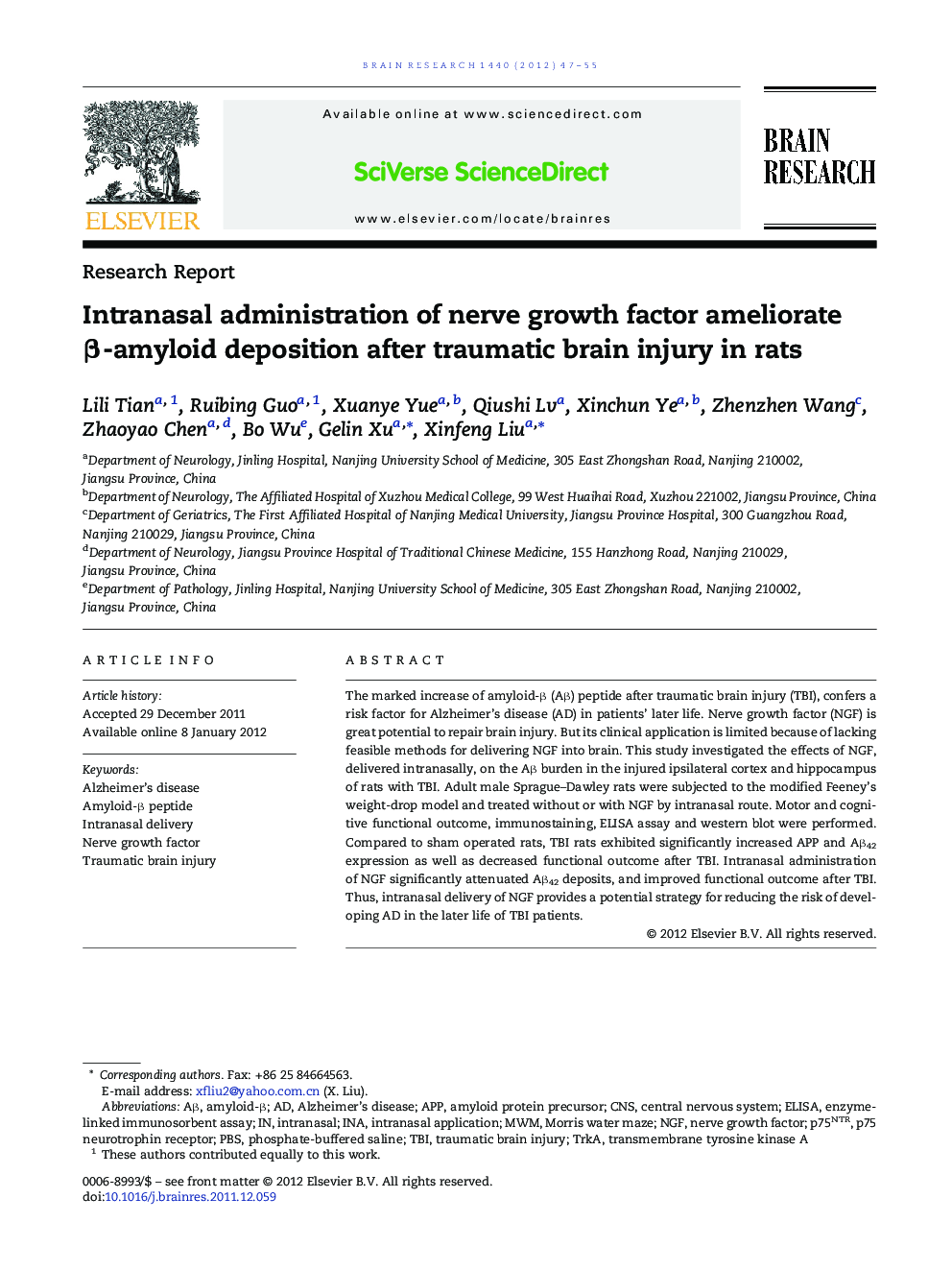| Article ID | Journal | Published Year | Pages | File Type |
|---|---|---|---|---|
| 4325405 | Brain Research | 2012 | 9 Pages |
The marked increase of amyloid-β (Aβ) peptide after traumatic brain injury (TBI), confers a risk factor for Alzheimer's disease (AD) in patients' later life. Nerve growth factor (NGF) is great potential to repair brain injury. But its clinical application is limited because of lacking feasible methods for delivering NGF into brain. This study investigated the effects of NGF, delivered intranasally, on the Aβ burden in the injured ipsilateral cortex and hippocampus of rats with TBI. Adult male Sprague–Dawley rats were subjected to the modified Feeney's weight-drop model and treated without or with NGF by intranasal route. Motor and cognitive functional outcome, immunostaining, ELISA assay and western blot were performed. Compared to sham operated rats, TBI rats exhibited significantly increased APP and Aβ42 expression as well as decreased functional outcome after TBI. Intranasal administration of NGF significantly attenuated Aβ42 deposits, and improved functional outcome after TBI. Thus, intranasal delivery of NGF provides a potential strategy for reducing the risk of developing AD in the later life of TBI patients.
►The study firstly treated traumatic brain injury with nerve growth factor by intranasal route. ►The expression of Aβ42 and APP was elevated immediately after TBI in rats. ►Intranasal administration of NGF improved the cognitive and neurological motor function. ►Intranasal delivery of NGF ameliorates amyloid-β deposition.
